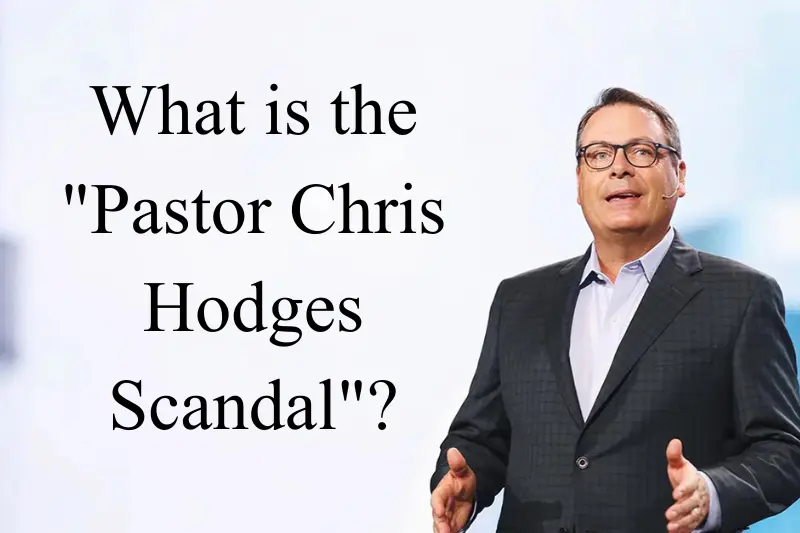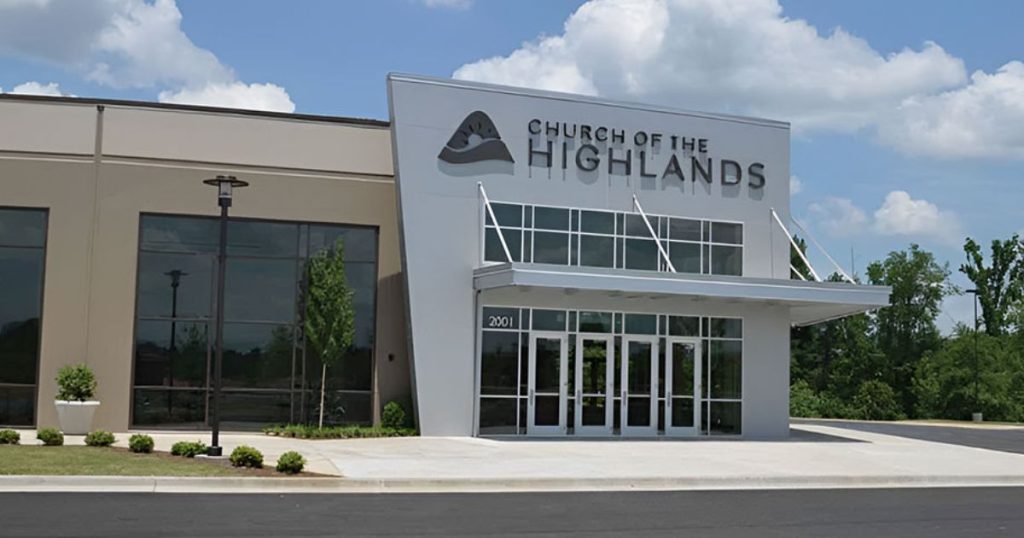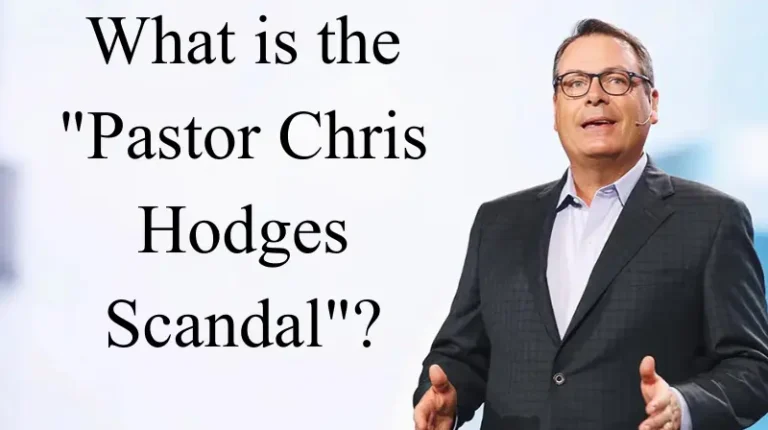In recent years, the Christian community has been rocked by numerous scandals involving high-profile religious leaders. One such controversy surrounds Pastor Chris Hodges Scandal, the founder and senior pastor of Church of the Highlands in Birmingham, Alabama.
This article delves into the details of the scandal, its impact on the church and community, and the lessons we can learn from such incidents.
what is Pastor Chris Hodges Scandal?

There are multiple sources reporting on a Pastor Chris Hodges scandal, with allegations ranging from inappropriate behavior and financial impropriety to sexual misconduct involving pastors within his church. 1 These allegations have led to public scrutiny and debate, with the church facing criticism for its handling of the situation. 1
The Controversy Unfolds
In June 2020, Pastor Chris Hodges found himself at the center of a social media storm when screenshots of his Twitter activity surfaced online. The images showed that Hodges had “liked” several posts by Charlie Kirk, a conservative political commentator known for his controversial views on race and social issues.
These actions sparked outrage among many community members, who viewed Hodges’ social media activity as an endorsement of potentially racist and divisive ideologies. The backlash was swift and intense, leading to serious consequences for both Hodges and his church.
Immediate Fallout
The controversy had immediate repercussions for Church of the Highlands and its community outreach programs:
- Eviction from public schools: The Birmingham Board of Education voted to terminate its leases with the church, which had been using public school facilities for its branch campuses.
- Suspension of volunteer programs: The Birmingham Housing Authority suspended the church’s volunteer programs in public housing communities.
- Public outcry: Many community members, including some church attendees, expressed disappointment and anger over Hodges’ apparent political leanings.
- Media scrutiny: The scandal attracted widespread media attention, putting Hodges and his church under intense public scrutiny.
Hodges’ Response and Apology
In the wake of the controversy, Pastor Chris Hodges took steps to address the situation:
- Public apology: Hodges issued a public apology during a church service, expressing remorse for his actions and the hurt they caused.
- Commitment to learning: He pledged to educate himself on issues of racial justice and sensitivity.
- Meeting with community leaders: Hodges met with local African American pastors and community leaders to discuss the incident and seek reconciliation.
- Diversity initiatives: The church announced plans to increase diversity within its leadership and staff.
Impact on Church of the Highlands
The pastor chris hodges scandalpastor chris hodges had significant consequences for Church of the Highlands, one of the largest and fastest-growing churches in America:
- Membership fluctuations: While some members left the church due to the controversy, others rallied around Hodges and the church leadership.
- Financial implications: The loss of public school venues for branch campuses led to logistical and financial challenges for the church.
- Reputation damage: The incident tarnished the church’s reputation, particularly among minority communities.
- Increased focus on racial issues: The controversy prompted the church to place a greater emphasis on addressing racial inequality and promoting diversity.
Broader Implications for Religious Leadership
The Pastor Chris Hodges scandal raises important questions about the role of religious leaders in today’s polarized political climate:
- Social media responsibility: Religious leaders must be mindful of their social media activity, as it can be seen as an endorsement of particular viewpoints.
- Balancing personal views and public responsibility: Leaders must navigate the fine line between expressing personal opinions and maintaining a unifying presence in diverse communities.
- Accountability and transparency: The incident highlights the need for greater accountability and transparency in religious organizations.
- Addressing systemic issues: Churches and religious institutions must actively work to address systemic racism and promote inclusivity.

Lessons Learned and Moving Forward
The controversy surrounding Pastor Chris Hodges offers valuable lessons for religious leaders and communities:
- Cultural sensitivity: Leaders must be aware of and sensitive to the diverse perspectives within their congregations and communities.
- Open dialogue: Encouraging open discussions about race, politics, and social issues can help prevent misunderstandings and promote unity.
- Continuous learning: Religious leaders should commit to ongoing education about social justice issues and cultural competency.
- Community engagement: Building strong relationships with diverse community groups can help foster understanding and mitigate potential conflicts.
- Proactive approach to inclusivity: Churches and religious organizations should actively work to create inclusive environments that welcome people from all backgrounds.
Conclusion
The Pastor Chris Hodges scandal serves as a stark reminder of the challenges facing religious leaders in today’s complex social and political landscape. While the incident caused significant upheaval for Church of the Highlands and its community, it also presented an opportunity for growth, learning, and positive change.
As we move forward, it’s crucial for religious leaders and their congregations to remain committed to open dialogue, cultural sensitivity, and active engagement with diverse communities. By doing so, they can help build stronger, more inclusive faith communities that truly reflect the values of love, compassion, and unity that lie at the heart of many religious traditions.

